Waterloo. Point of no return
12 failures by Napoleon Bonaparte. With each of his next defeats, Napoleon himself left himself less and less chances of a rebirth. Or, if you like, to return. Up to 100 days, it was usually the French emperor who rejected any proposals for a decent peace, considering them unworthy.
In 1815, everything was different, Napoleon really longed for peace. More than this, he wanted only one thing - a meeting with his son, but Maria Louise was not the last of those who betrayed him. The allies did not want to hear about peace with Napoleonic France, Petersburg and London were especially militant.
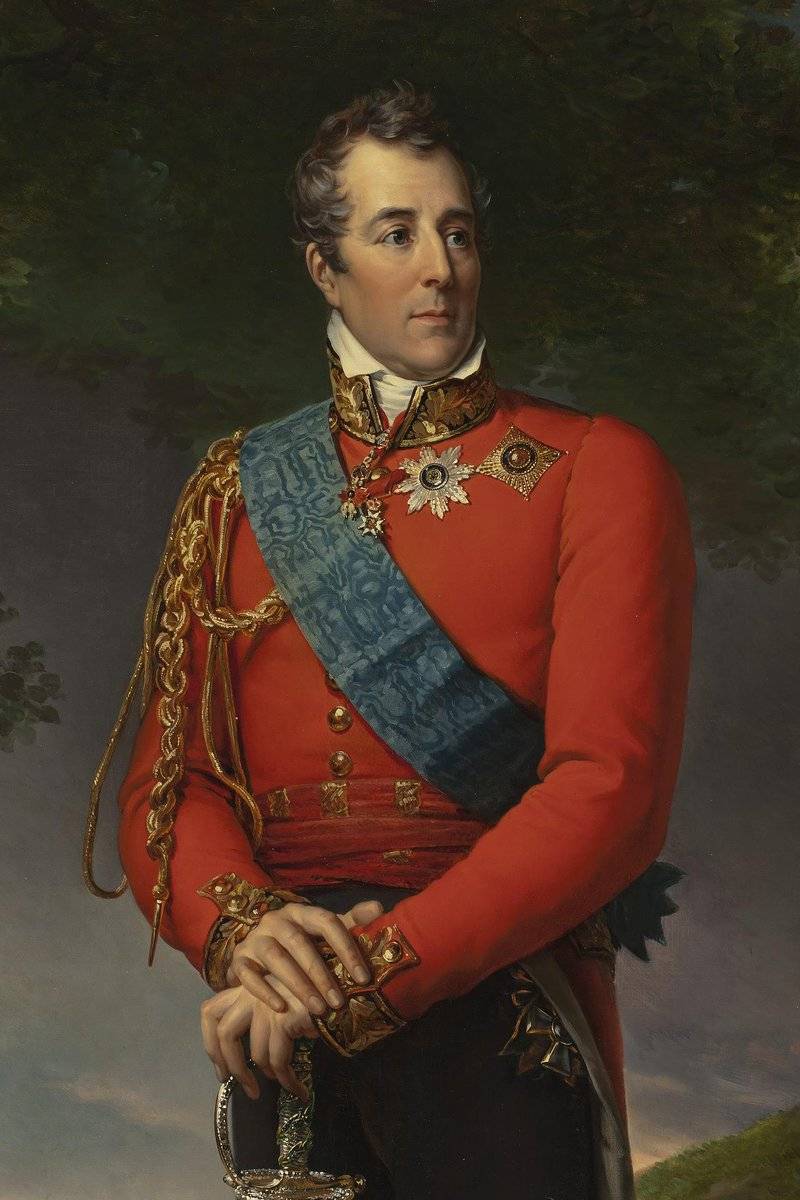
Duke of Wellington
The British, having dealt with Spanish problems, for the first time during the Napoleonic Wars put up an army near the northern borders of France. At its head stood the Duke of Wellington, who fought for several years in the Pyrenees, where he managed to defeat many Napoleon's marshals. With the emperor himself, fate bred him, but it seems, only in order to reduce in the last battle.
No guilty guilty
Napoleon's return took place just a year after the abdication. It is rather strange that after 100 days France was again imposed by the Bourbons, who managed to discredit themselves as much as possible. It was no coincidence that it was said about them: "They have not forgotten anything and have not learned anything."
Objectively, for a while, everything was in Napoleon's favor. And as it was always in his life, when a chance appeared, Napoleon was not slow to take advantage of it. For three months he was even spared the need to make excuses for failures, correcting the truth.
But the emperor’s habit almost turned into a mania, especially when preparing the famous “Bulletins” for the public. After each new failure, he certainly turned out to be more and more objective reasons for justification and more and more guilty.
The spring of 1815 is a completely different matter. Instead, to mislead the public became a royalist, as, indeed, the rest of the press. Suffice it to recall how she painted Napoleon's bloodless march from the Cote d'Azur to Paris. “A Corsican monster has landed in the bay of João,” “The usurper has entered Grenoble,” “Bonaparte has occupied Lyon,” “Napoleon is approaching Fontainebleau,” and finally, “His Imperial Majesty enters Paris faithful to him.”
When the emperor led his revived regiments against Blucher and Wellington, he himself, judging by all indications, had no doubt that he would be able to solve the matter in two three battles, and not necessarily general ones. The way the French finished Blucher under Linyi made such expectations fully justified.
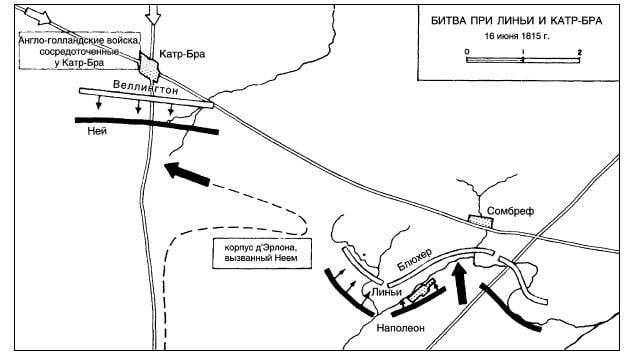
If Marshal Ney, who only had to withstand Katr-Bra against the advancing vanguards of Wellington’s army, didn’t return d'Erlon’s corps to battle, allowing him to hit Blucher's rear, the defeat would be complete. Even the success of the British against Ney then could not change anything. Under Waterloo Wellington, most likely, he simply would not have fought.
Another thing is that the campaign of 1815 in any case could not end successfully for Napoleon, but he would be able to win for some time. Perhaps in Vienna someone became a little more accommodating, although it is very difficult to believe that Alexander I would refuse to continue the struggle. By the way, England would definitely not add up weapons.
Of course, one cannot ignore the fact that the army, which opposed the British and Prussians in June 1815, was much more experienced and professional than the one with which Napoleon surprised the world in the last French campaign. But this does not in the least prevent thousands of historians from stubbornly continuing to investigate the mistakes of Marshals Pear and Ney, Napoleon himself after Linyi.
Meanwhile, the outcome of the short campaign not in favor of the French was finally decided just in the very first battle of the campaign - at Linyi. Ney returned his first corps from there, which allowed Blucher to withdraw the backbone of the Prussian army from under the persecution. Winning at Linyi, Napoleon threw Blucher away from the Anglo-Dutch ally by more than five leagues (almost 30 kilometers).
Even the victorious army, in those days, it would take more than a day to overcome such a distance, and the Prussians were pretty beaten by Linyi. However, Blucher, not by any means beautiful eyes, who received the nickname from the soldiers, Marshal “Forward” (Vorwärts), repeated to them again and again: “What we lose on the march cannot be returned to the battlefield”.
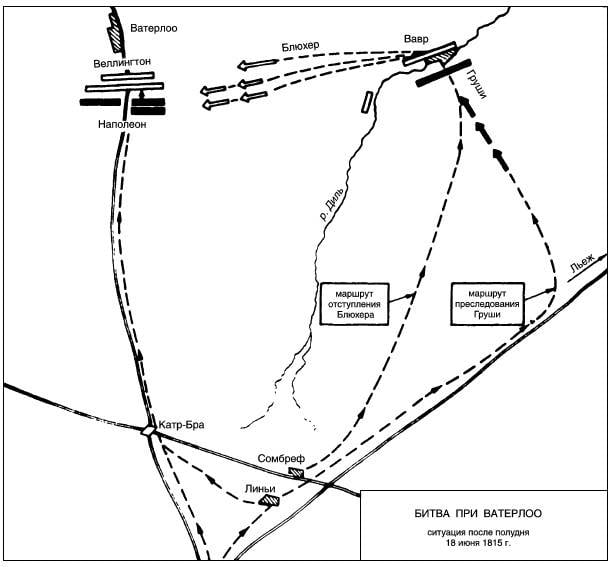
By country roads, the Prussians reached Wavre - just a half-way from Wellington's position. And the victorious corps of Pear and Gerard, after they received news that Bullov and Tilman were joining Blucher, rushed to Gembloux. There they were from the main forces of Napoleon at a distance twice as large as the Prussians from Wellington. And this was the result of blindly following the emperor’s order to keep up with Blucher.
Even the guard is dying
From Linyi Napoleon, detaching Pears after Blucher, moved his main forces against the Anglo-Dutch army. To the plateau of Mont Saint-Jean, where the 70th army of Wellington, the corps of Rayle and d'Erlon, the cavalry and guard of Napoleon, along with the joined corps of Ney, were located only in the evening of June 17.
In the distance, the enemy’s positions, mostly hidden behind densely overgrown shrubs, slowly sank fog. French artillery pulled itself almost until dawn. The Napoleonic army, pretty battered under Linyi, was already quite a bit superior to the strength of the British and Dutch, numbering about 72 thousand people.
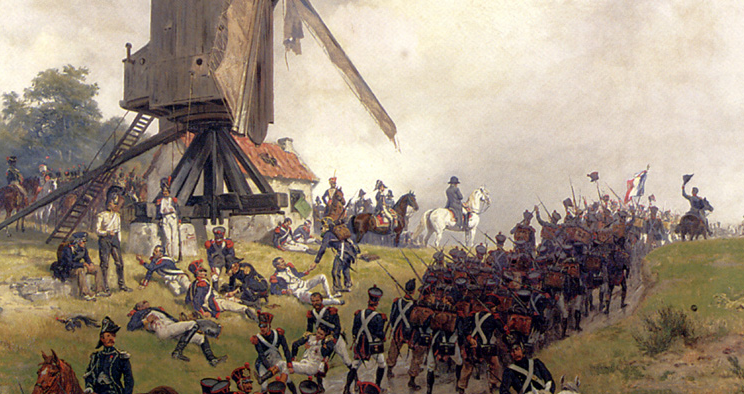
Napoleon's march from Linyi to Waterloo
Most likely, those researchers are right who believe that Pears could be sent to pursue with much less forces than 33 thousand - almost a third of the army. But Napoleon himself felt that he had not finished off Blucher, and was too afraid that the old Prussian would abandon Wellington and would prefer easier prey. The experience of the last campaign convinced the emperor precisely in this. Moreover, the units of Bullov and Tillmann were about to join Blucher.
So, on the morning of June 18, the two armies were facing each other, but the commanders were in no hurry to start the battle, waiting for reinforcements. Napoleon hoped that Pears would be able to push Blucher back, but he did not take into account the fact that the path of the Prussians was much shorter, and his new marshal too literally took the order to pursue.
The old Prussian outwitted the French, and they did not even prevent him from connecting with the reinforcements who had approached. Wellington also had the right to expect support from the Prussians, despite the blow that the French inflicted upon them under Linyi.
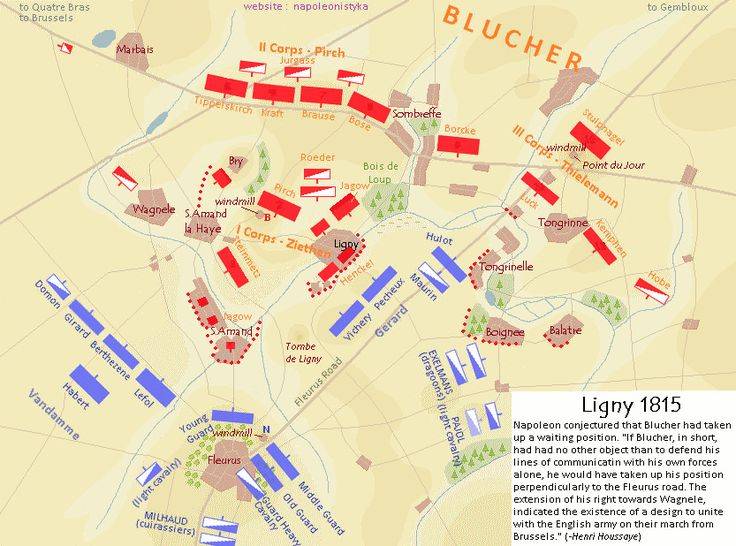
The Battle of Linyi
Obviously, the duke would have avoided the battle altogether if Blucher himself had not assured him that he would manage to bring at least half of his army to the field of Waterloo. And under his command, as it turned out after calculating the losses at Linyi, there were at least 80 thousand, although not all of them were ready to fight again.
The very course of the Battle of Waterloo has been studied as thoroughly as possible, and more than once described on the pages of the Military Review (Waterloo How Napoleon's Empire Perished) In Russia, the presentation of events by the great Eugene Tarle in his textbook work Napoleon is rightly considered classic. To him for a start and turn.
Napoleon’s headquarters was first at the farm du Caille. At 11 1/2 o’clock in the morning Napoleon thought that the soil had dried sufficiently, and only then he ordered the battle to begin. A strong artillery fire of 84 guns was opened against the left wing of the British and an attack was launched under the leadership of Ney. At the same time, the French launched a weaker attack with the aim of demonstrating at Ugumon Castle on the right flank of the English army, where the attack met the most energetic rebuff and came across a fortified position.
The attack on the left wing of the British continued. The killing struggle went on for an hour and a half, when Napoleon noticed in a very great distance in the north-east near Saint-Lambert the obscure outlines of the moving troops. At first he thought it was Pear, which from the night and then several times during the morning was ordered to rush to the battlefield.
But it was not Pear, but Blucher, who had escaped the pursuit of Pear and, after very skillfully executed transitions, had deceived the French Marshal, and now he was in a hurry to help Wellington. Napoleon, learning the truth, still was not embarrassed; he was convinced that Pears were on the heels behind Blucher and that when both of them would arrive at the battlefield, although Blucher would bring Wellington more reinforcements than Pears would bring to the emperor, but all the same the forces would more or less balance, and if before the appearance of Blucher and "He will manage to deliver a punch to the British with a crushing blow, then the battle after the approach of Pear will be finally won."
What Pears have done ...
Here we invite the reader to make the first small digression. And we ask ourselves: why did Napoleon himself, and after him and the many creators of the Napoleonic legend, generally need to blame almost all the blame for Waterloo on Marshal Pear?
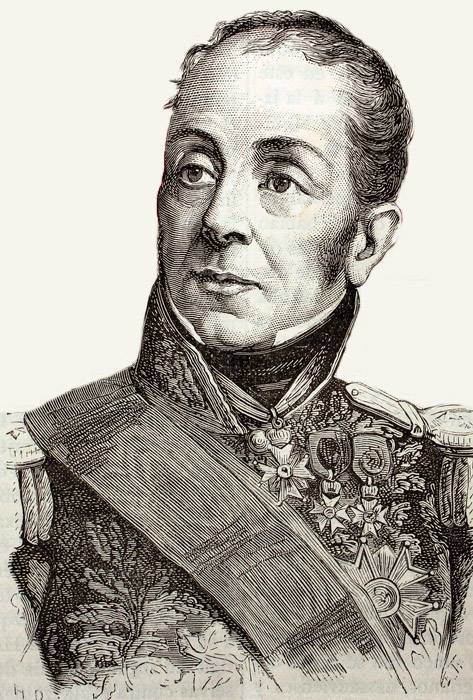
E. Pears - the last of Napoleon's 26 marshals
After all, even a victory would not have given the emperor and France anything but the continuation of a new war, worse than the one that a year earlier ended with the fall of Paris and the abdication of Napoleon. Pears himself between Linyi and Waterloo only confirmed the fact that he was absolutely not capable of independent command.
The fact that he missed Blucher was not a terrible tragedy yet, the Pear regiments, by the way, even managed to hook Tilman’s detachment on the right bank of the river. Deal. The main forces of the Prussians did not become distracted by the blow, which seemed to threaten their rear and were in a hurry to help Wellington. Even if Schwarzenberg had been in his place, which Blucher simply could not stand, the field marshal would still drive his soldiers into battle.
The resilience of Wellington’s soldiers and Blucher’s iron will, and not Napoleon’s miscalculations and marshal’s mistakes at all, became the main factors in the Allied victory in the last battle. but also necessary.
We only note that the last of Napoleon’s defeats made his legend more than any other. And much more. But it is precisely in his last defeat that the emperor is simply obliged to be guilty of the least. Otherwise, why then do you need a Napoleonic legend. And it doesn’t matter if this is really so.
We continue to quote the famous book of E. Tarle.
This attack upset almost the entire body of d'Erlon. The left wing of the English army could not be broken. Then Napoleon changes his plan and transfers the main blow to the center and the right wing of the English army. At 3 1/2 hours, La Haut Saint Farm was taken by the left-flank division of d'Erlon Corps. But this corps did not have the strength to develop success. Then Napoleon gives Her 40 squadrons of cavalry Millot and Lefebvre-Denuett with the task of striking the right wing of the British between the castle Ugumon and La Hain Saint. Ugumon Castle was finally taken at this time, but the British held on, falling hundreds and hundreds and not retreating from their main positions.
During this famous attack, the French cavalry came under fire from the English infantry and artillery. But this did not bother the rest. There was a time when Wellington thought that everything was lost - and this was not only thought, but also spoken at his headquarters. The English commander betrayed his mood with the words with which he replied to the report on the impossibility of the British troops to keep known points: “Let them all die in this case! I no longer have reinforcements. Let them die to the last man, but we must hold out until Blucher arrives, "Wellington answered all the alarmed reports of his generals, throwing their last reserves into battle."
And where did Her mistake
Ney's attack is the second reason to slow down in citation. And the emperor’s second personal mistake, which he himself at first, and then the devoted historians together attributed to the marshal. However, this marshal did not grow old and lost either ardor and energy, or skill in establishing interaction between the armed forces.
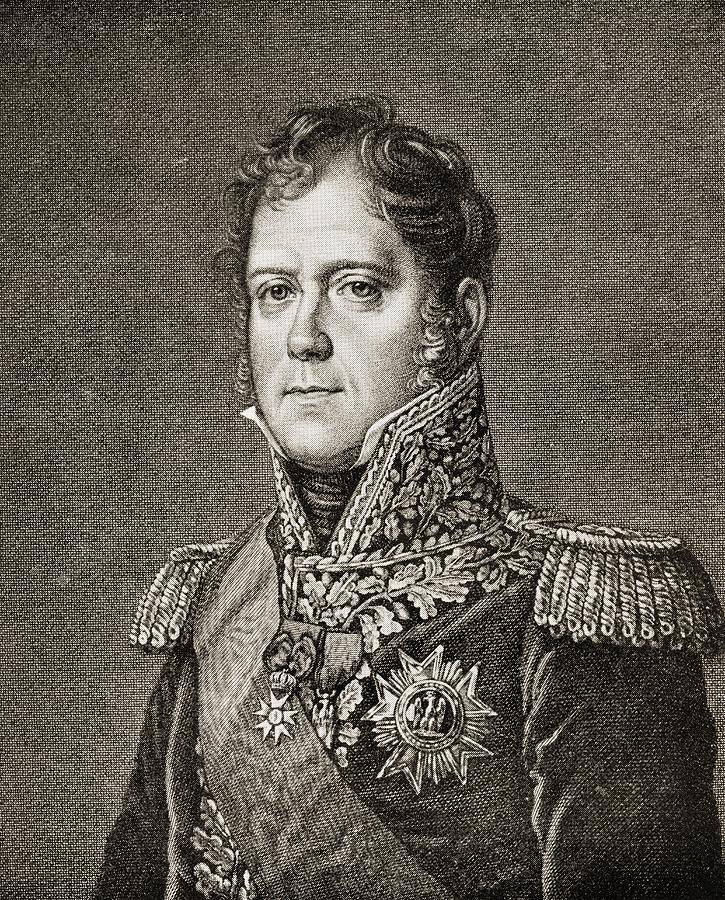
M. Ney - Marshal, recognized as the bravest of the brave
This Napoleon, with each of his subsequent campaigns, acted more and more according to the pattern, preferring straightforward massive attacks. Although the army of 1815, may readers forgive the repetition, was much more experienced and hardened than the last scripts of the campaign. By the way, they themselves managed to become real professional warriors. But, perhaps, the main thing is that Napoleon at Waterloo had a very bad situation with artillery, and Marshal Ney absolutely had nothing to do with it.
No, most of the French gunners were also masters of their craft, the bad thing was that the emperor now had too few guns, and the guns were not the best. Several dozen of the best Frenchmen either lost at Ligny, or simply did not have time to pull up to the Mont-Saint-Jean plateau.
Well, even Napoleon was let down by damned dirt, because of which he lost the opportunity to maneuver the batteries, focusing fire at the main points. So, as he brilliantly did it under Wagram, Borodin and Dresden. The shortage of guns could be compensated by infantry columns. And it was not for nothing that Academician Tarle noted that "Napoleon did not expect infantry reserves."
The Emperor
Soon, however, panic spread: the Prussian cavalry fell upon the French guard, who was caught between two fires, and Blucher himself rushed with the rest of his strength to the Belle Alliance farm, from where Napoleon had come forward with the guard. Blucher, with this maneuver, wanted to cut off Napoleon's retreat. It was already eight o’clock in the evening, but still light enough, and then Wellington, who had been standing all day under continuous murderous attacks by the French, went on a general offensive. But Pears did not come. Until the last minute, Napoleon waited in vain. "
Everything is over
Let's make the last, very short digression. The turning point passed long before the Prussians approached, and, as many military historians believe, Napoleon had to stop the battle without even throwing the guard into the fire.
E. Tarle wrote:
In other areas, the French troops, and especially Plansenoy, where the reserve was fighting — the Duke Lobau’s corps — resisted, but in the end, being attacked by the fresh forces of the Prussians, they dispersed in different directions, fleeing, and only the next day, and it was only partially begun to assemble in organized units. The Prussians pursued the enemy all night long distances. ”
On the battlefield, the French lost a little more than the British, Dutch and Prussians - about 25 thousand against 23 thousand among the allies. But after Waterloo, losses in retreat were very terrible, which is rare for Napoleonic troops. And it’s not so important that Blucher insisted that the “Golden Bridges” should not be built on the enemy, and mercilessly persecuted the French.
More important is the collapse of the Napoleonic army itself, we recall again, much more experienced and combat-ready than in 1814. The same Pears, which Napoleon, more precisely, his apologists later made a scapegoat, with great difficulty pulled out his divisions and part of the defeated army from the blows of the enemy, for which, incidentally, he received praise from the emperor.
It seems that the emperor himself understood that he was to blame for the defeat much more than Pears. Otherwise, why in his memoirs does the Pear transition from Namur to Paris - after Waterloo, be called "one of the most brilliant exploits of the war of 1815."
Napoleon in Saint Helena admitted to Las Casas:
He could, but did not. Apparently, Napoleon was disappointed not only on the battlefield near Waterloo, but also after it. And it’s not at all because not only all of Europe was again opposing him, pushing thousands of armies to the French border, but also his own wife.
The army remained, but after Waterloo he did not have an army that would win. To repeat the 1793rd or 1814th with real chances of success has become, by all indications, already impossible. And historians will decide for a long time who betrayed whom after Waterloo: Napoleon's France or Napoleon's France after all.
The famous contemporary publicist Alexander Nikonov said about the French emperor: "He wanted peace so badly that he constantly fought." In 1815, Napoleon was allowed to stay in the world or with the world for less than 100 days.
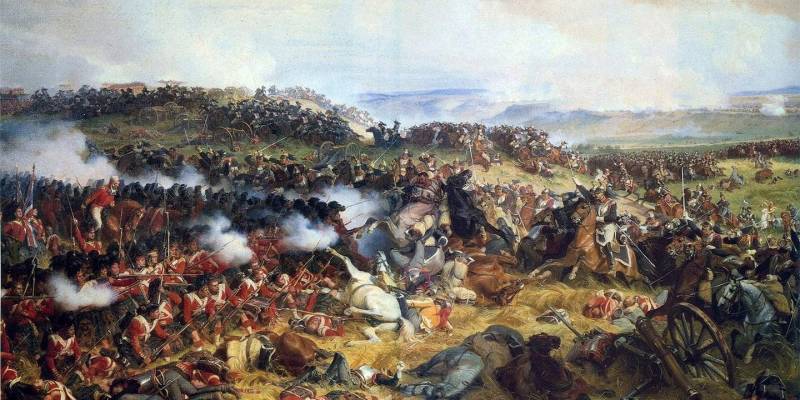
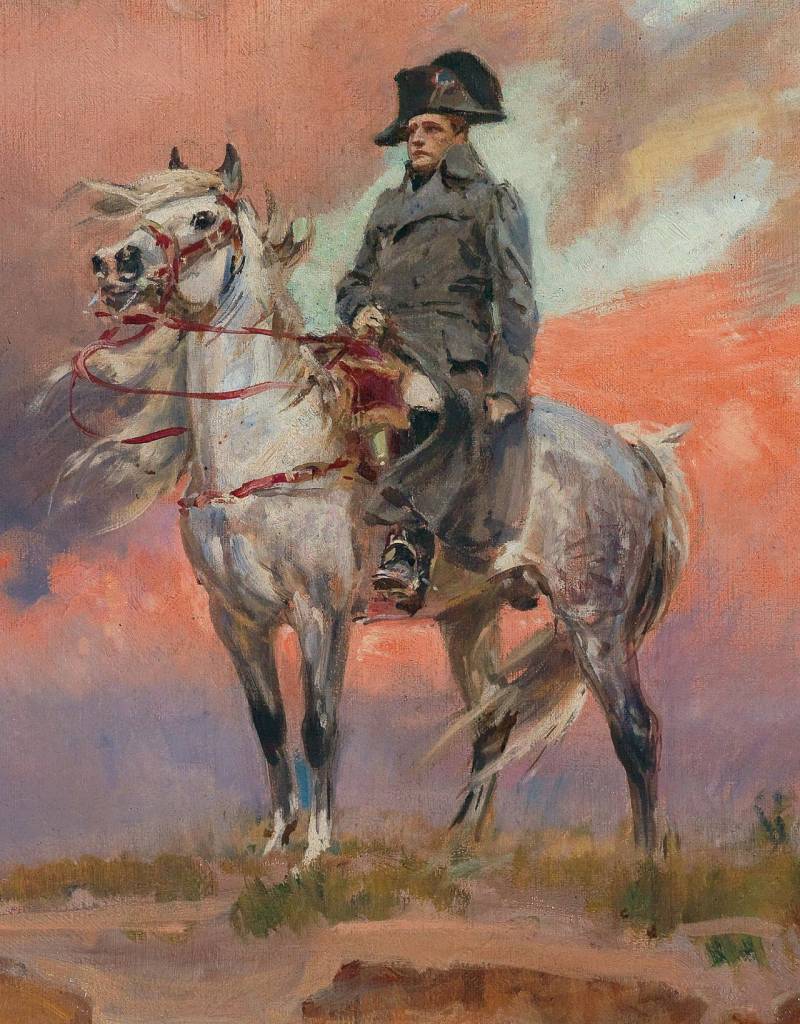
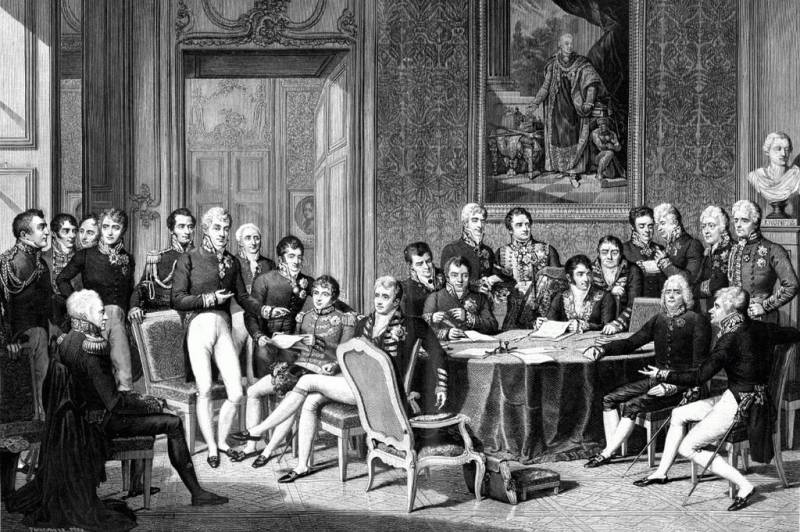
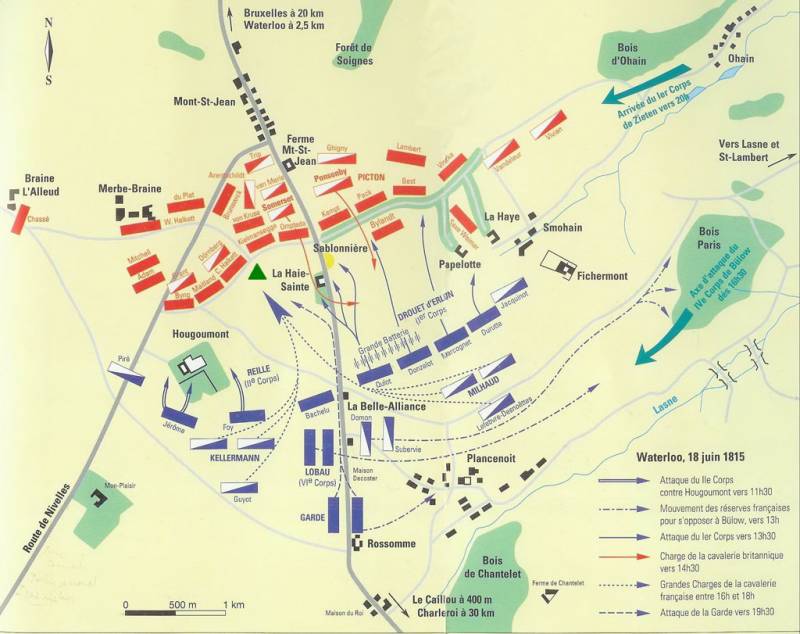
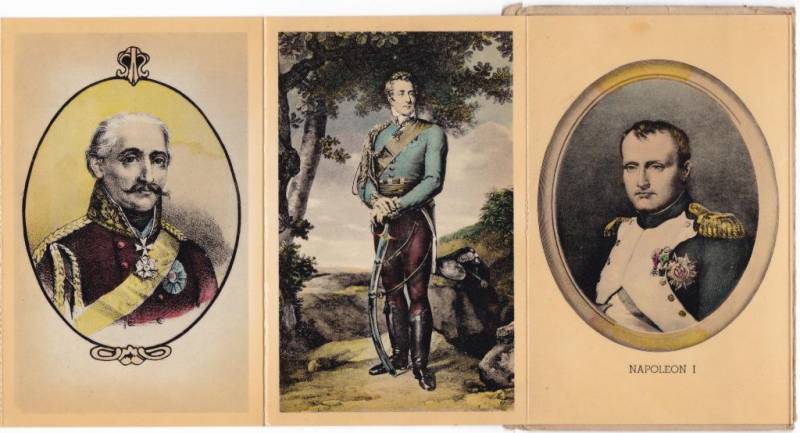
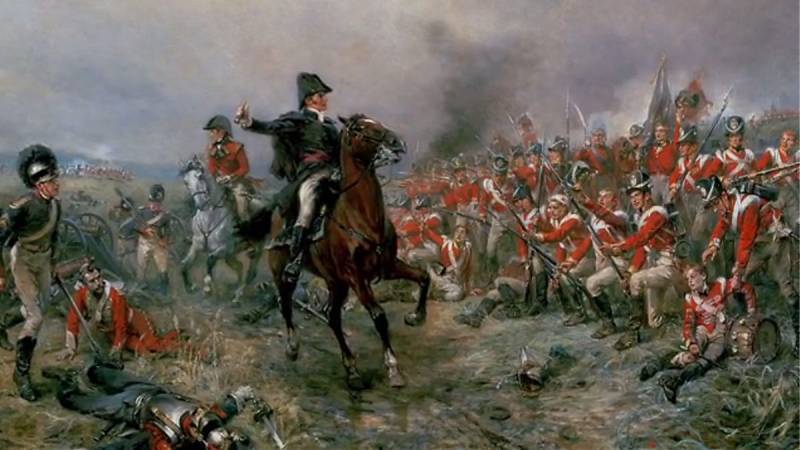

Information